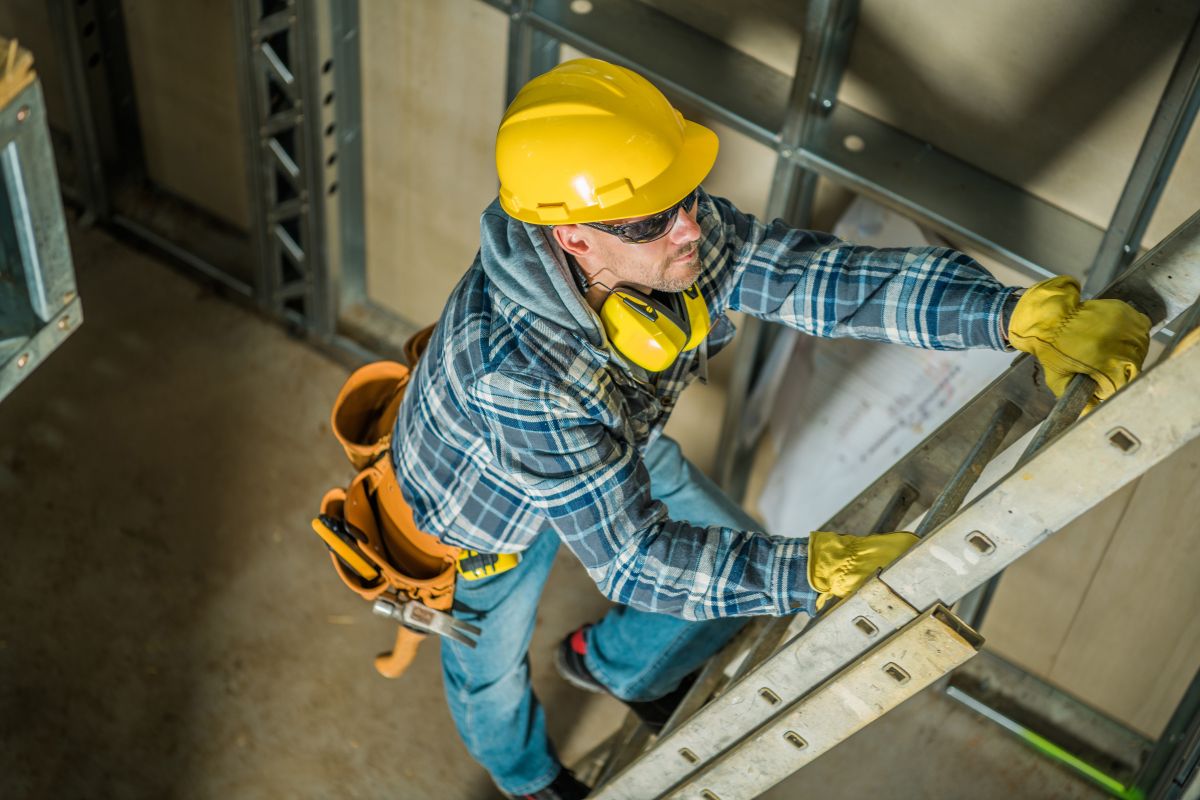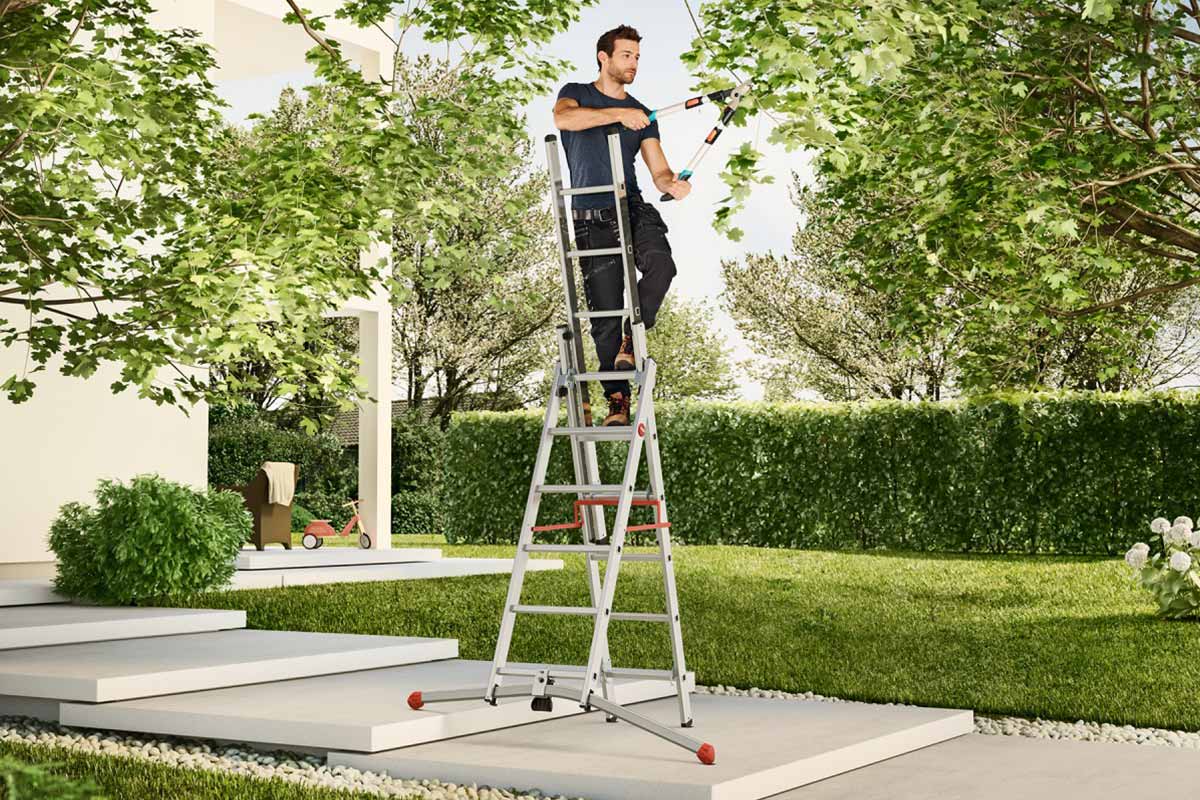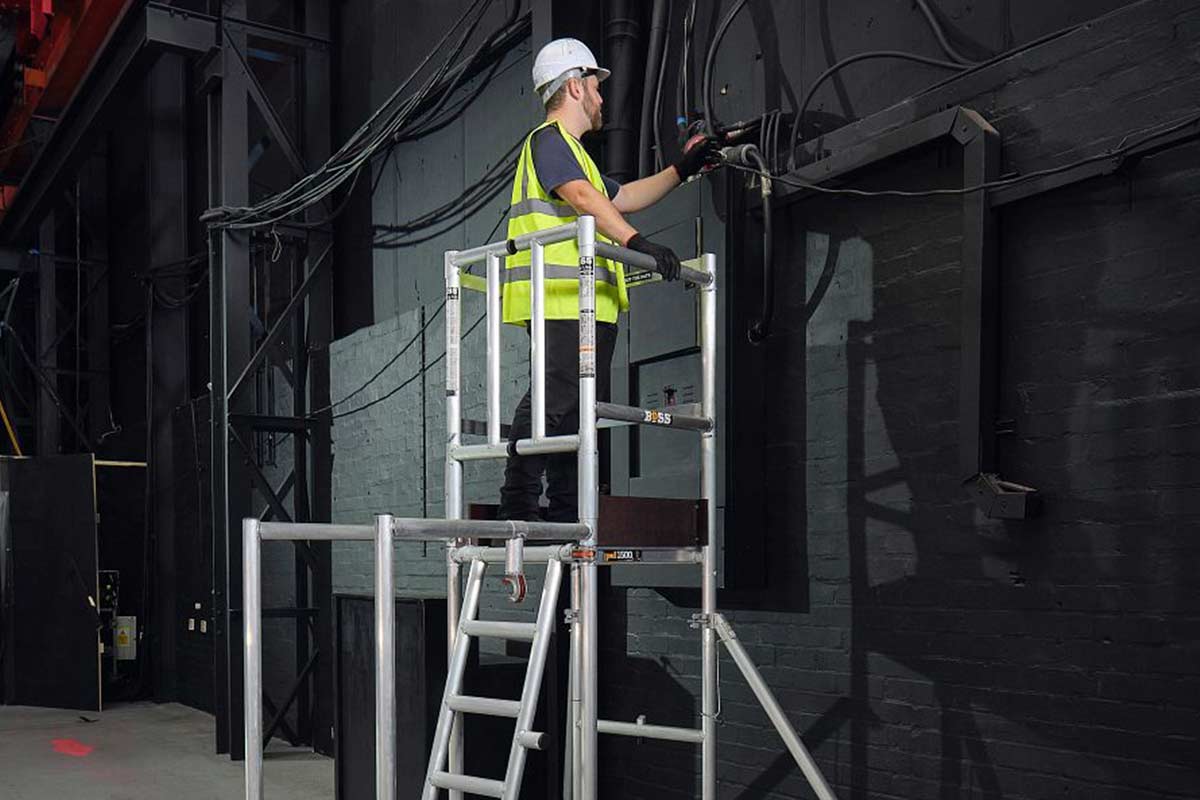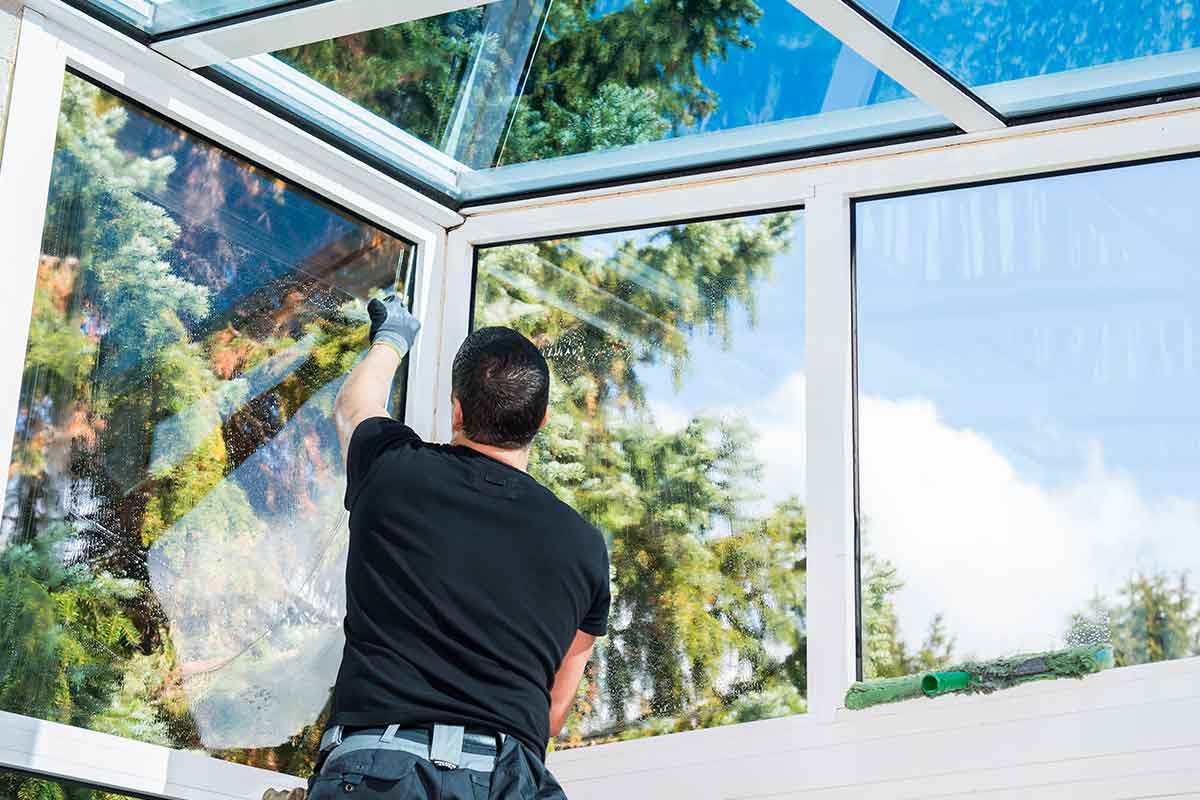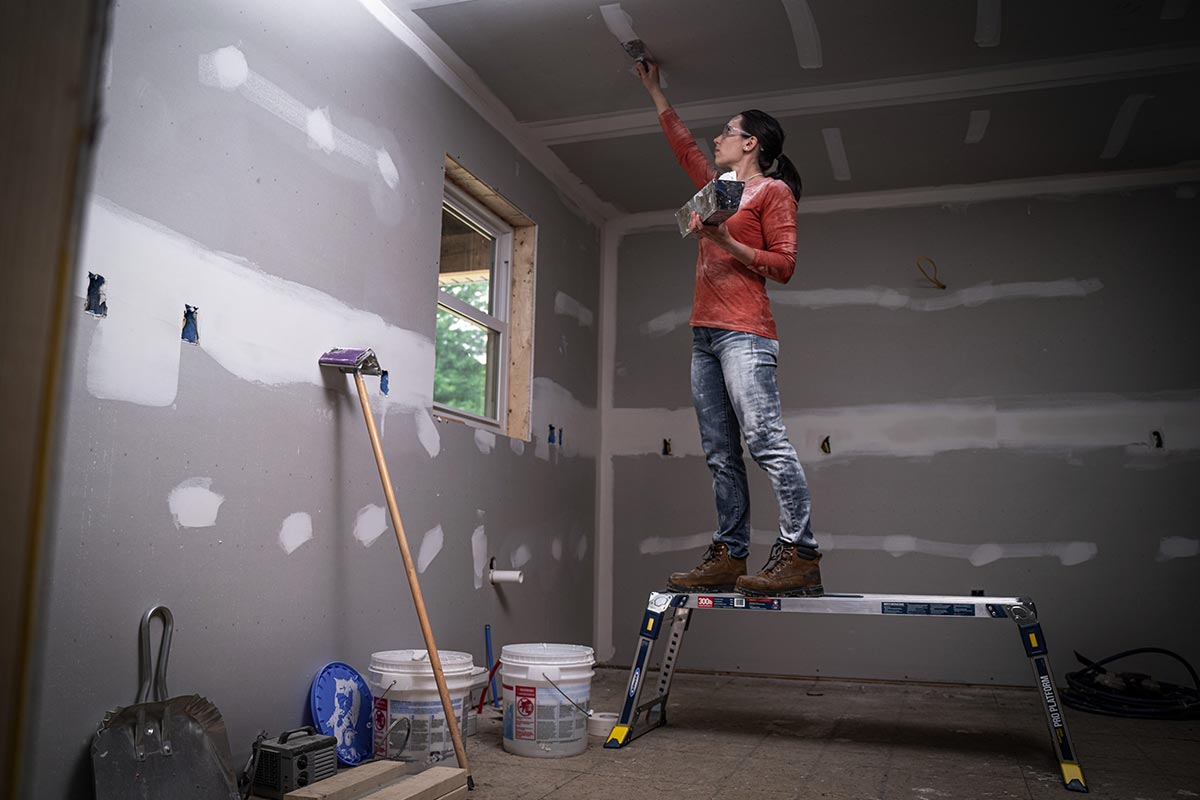What Ladders Do Electricians Use?
August 19, 2024 | Nate Cord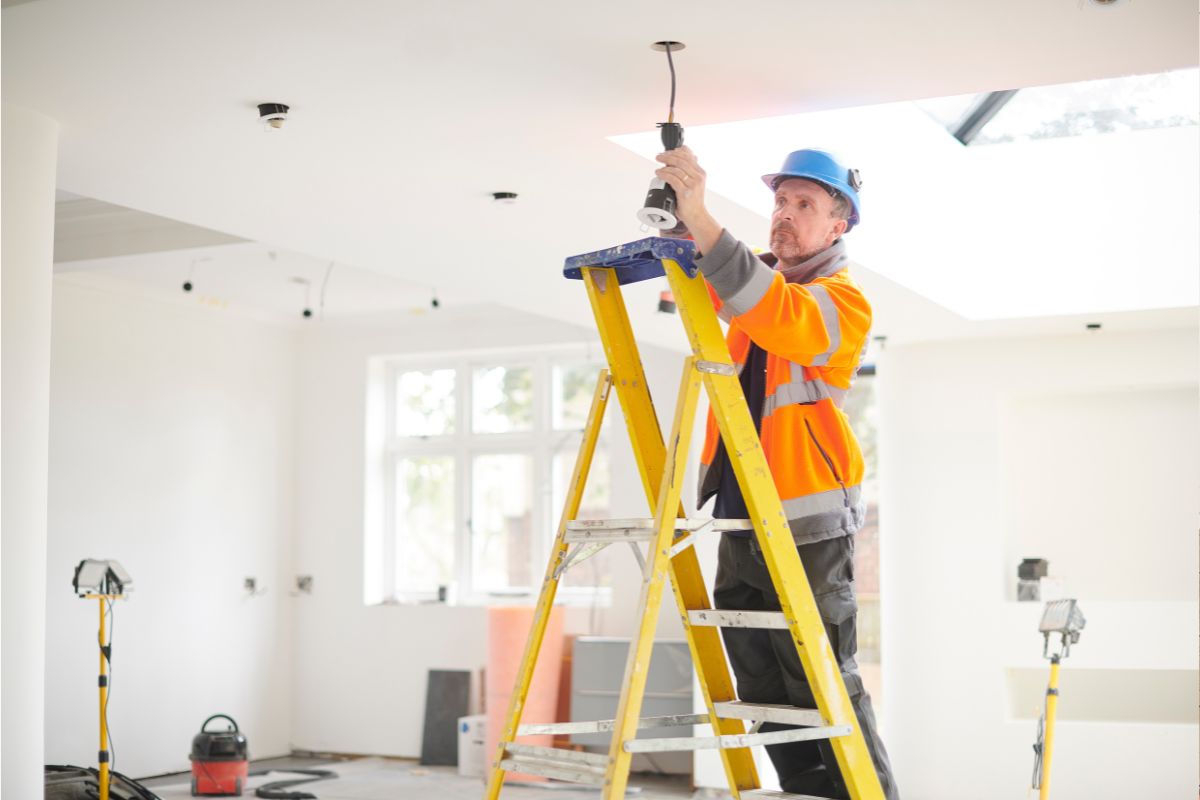
When it comes to electrical work, safety is of course absolutely crucial, and choosing the right tools can make all the difference between a safe or dangerous job.
Among these tools, ladders play a key role, not just for reaching elevated work areas but also for protecting electricians from potential hazards. Using the wrong ladder while carrying out electrical work can pose the threat of electric shock or accidents, so understanding which ladders are best suited for the job is essential.
The most popular type of ladder used by electricians are fibreglass ladders, primarily because of their non-conductive properties, which are crucial for safety when working around electricity.
How Do Fibreglass Ladders Safely Protect Against Electricity?
To put it simply, fibreglass is made from a combination of fine glass fibres embedded in a resin matrix, which makes it inherently non-conductive. This means it does not allow electricity to pass through it.
When a fibreglass ladder is used for electrical work, the material acts as a barrier that prevents electrical current from travelling through the ladder and reaching the electrician, even if the ladder comes into direct contact with live electrical circuits or wires.
Browse our wide range of fibreglass ladders on our website, designed specifically to meet the exacting requirements of EN31 and tested to be up to 30,000 volts resistant.
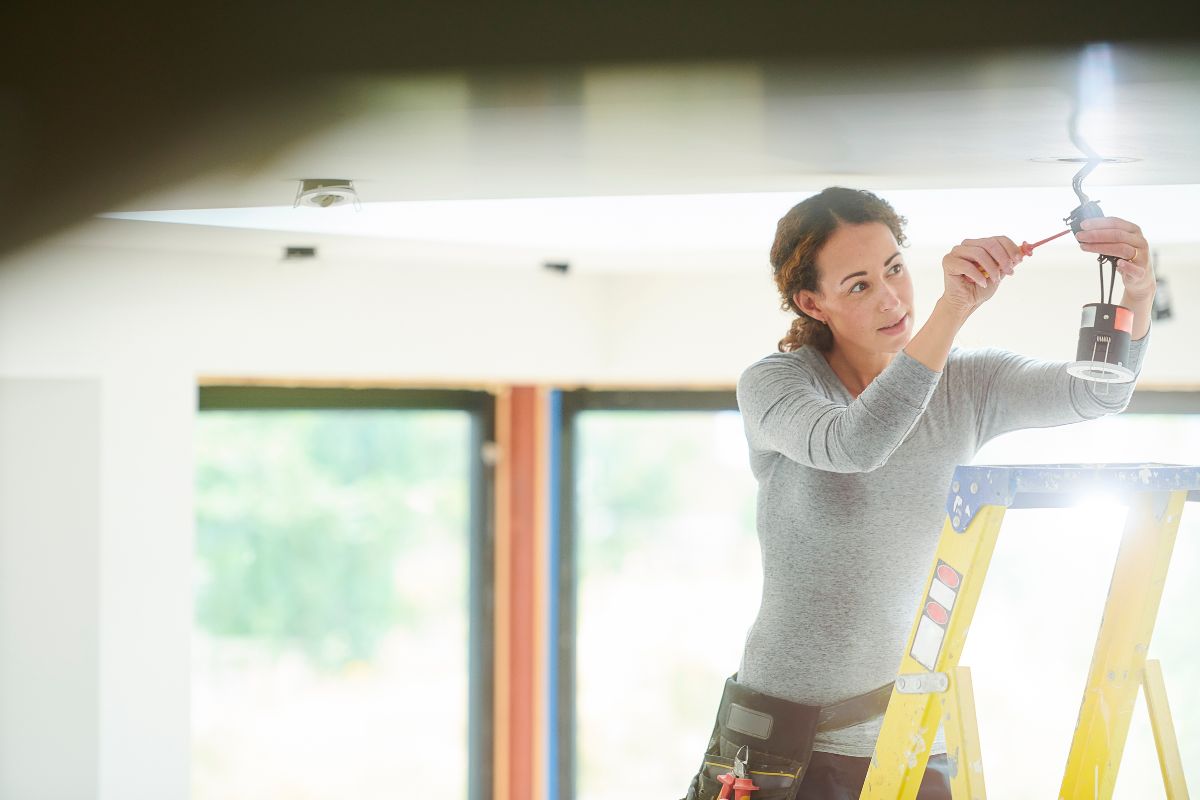
The insulation in fibreglass ladders is crucial in preventing an electric shock, which will occur if an electrician accidentally touches a live wire while standing on a conductive surface.
Can Electricians Use Aluminum Ladders?
Generally speaking, electricians should not use aluminium ladders while working with electricity.
Unlike fibreglass, aluminium is a highly conductive metal, meaning it can easily carry electrical current. If one of these ladders come into contact with a live electrical source, it can easily transfer the current through the ladder to the person (electrician) using it, leading to electric shock or electrocution.
How Dangerous Is an Electric Shock for an Electrician?
An electric shock can be extremely dangerous for an electrician, potentially leading to serious injury, long-term health effects, or even death in some rare cases.
Of course, the severity of the shock depends on a number of different factors, such as the voltage, current, duration of exposure, and the path the electricity takes through the body.
While low-voltage shocks are less likely to be fatal, they can still cause muscle contractions, burns, and neurological damage. And if a low voltage current passes through the heart or brain, this can cause serious harm and long-term effects.
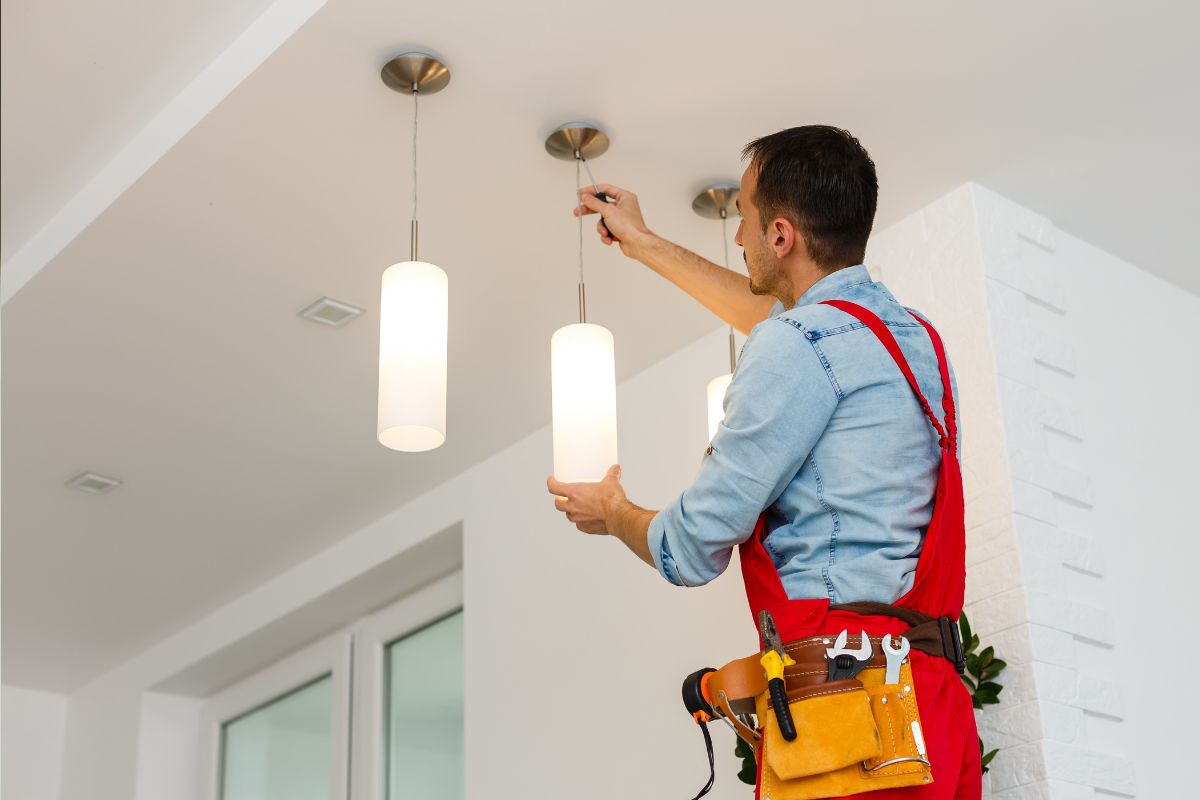
The risks associated with a conductive ladder is why it’s super important to do your research and purchase a non-conductive fibreglass ladder for any electrical work.
You can shop our wide range of electrician ladders here, and if you need a little guidance deciding which one is right for you, give us a call on 01639 849847 to speak with our ladder experts.
Other Factors to Consider When Choosing a Ladder for Electrical Work
Beyond the material, there are other additional factors that you should be considering to ensure both the safety and efficiency of your job:
UK Ladder Safety Standards
Up until 2018, there were 3 standards for ladders in the UK. These included:
- Class EN131 ladders have a duty rating of 115kg, a maximum load of 150kg and are suitable for commercial use
- Class 1 (BS2037 / BS1129)- ladders have a duty rating of 130kg, and a maximum load of 175 kg and are suitable for industrial use.
- Class 3 (BS2037 / BS1129) ladders have a duty rating of 95kg, and a maximum load of 125 kg and are suitable for domestic use.
Now, these standards all fall under one umbrella – EN131 Professional and EN131 Non-Professional.
EN131 is a European committee for standardisation (CEN) harmonised standard for portable steps and ladders, and designed to improve ladder safety by making ladders wider, stronger and sturdier.
Environmental Conditions
Another thing you need to think about are environmental conditions. For example, if you’ll be working outdoors, you must choose a ladder that can withstand exposure to the (potential) harsh elements like rain and UV.
In environments where the ladder could be exposed to chemicals or moisture, it’s best to choose one with corrosion-resistant properties, to prevent it from getting damaged.
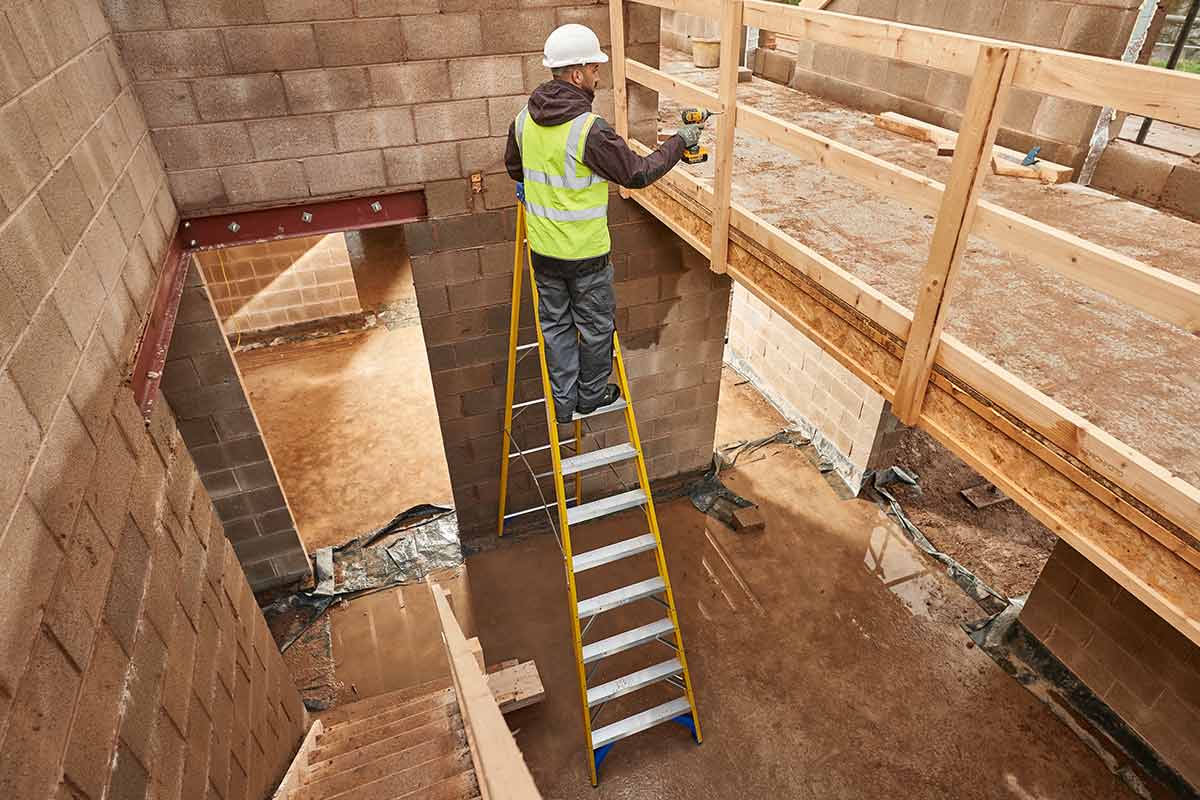
Fibreglass ladders are generally resistant to weathering and UV light when used outside.
Weight
Another thing you’ll need to consider is the weight and portability of the ladder if you need to move it between locations.
While fibreglass ladders tend to be heavier than aluminium ladders, they come in a variety of sizes and weights allowing you to select a model that balances safety and convenience for your specific tasks.
Some fibreglass ladders can be as light as 6kg, such as the Werner Odd Job 600 Fibreglass Work Platform, while bigger models like the Werner Megastep Series Platform Fibreglass Steps would naturally be more heavy.
Height
Of course, the whole purpose of a ladder is to provide you with enough height to reach high places, so you’ll need to ensure the ladder chosen is tall enough for the job without requiring you to overreach.
Depending on the nature of the work, you might need a step ladder (for lower heights) or an extension ladder (for higher elevations).
Step Ladders vs Extension Ladders
A step ladder is a self-supporting, portable ladder that consists of flat steps and a hinged frame, and designed to be propped up by placing it in an “A” shape.
There are two types of step ladders – platform step ladders which have a large platform to rest on, and swingback step ladders, which don’t have a platform. That said, most do have the tool holding feature.
A good example of a step ladder for electricians is the Zarges Fibreglass Platform Step Ladder, offering a high level of protection provided for working on electrical installations thanks to insulated stiles made from glass-fibre-reinforced plastic.
Learn more about the best step ladders to buy in 2024 here.
An extension ladder on the other hand, is a type of ladder specially designed to provide adjustable height, allowing users to reach elevated work areas that would be otherwise tricky to access with a fixed-length ladder.
The Murdoch GRP Triple Fibreglass Extension Ladder with a Retractable Stabiliser Bar is a great example of a fibreglass extension ladder, manufactured from top quality box section fibreglass to be used in electrical/chemical environments.
The Little Giant Safety Cage Fibreglass Podium Step and Boss Zone Fibreglass Scaffold Tower are also ideal for industrial electricians. Both are made from fibreglass and offer a platform that allows electricians to move freely and safely while working on tasks at elevated positions.
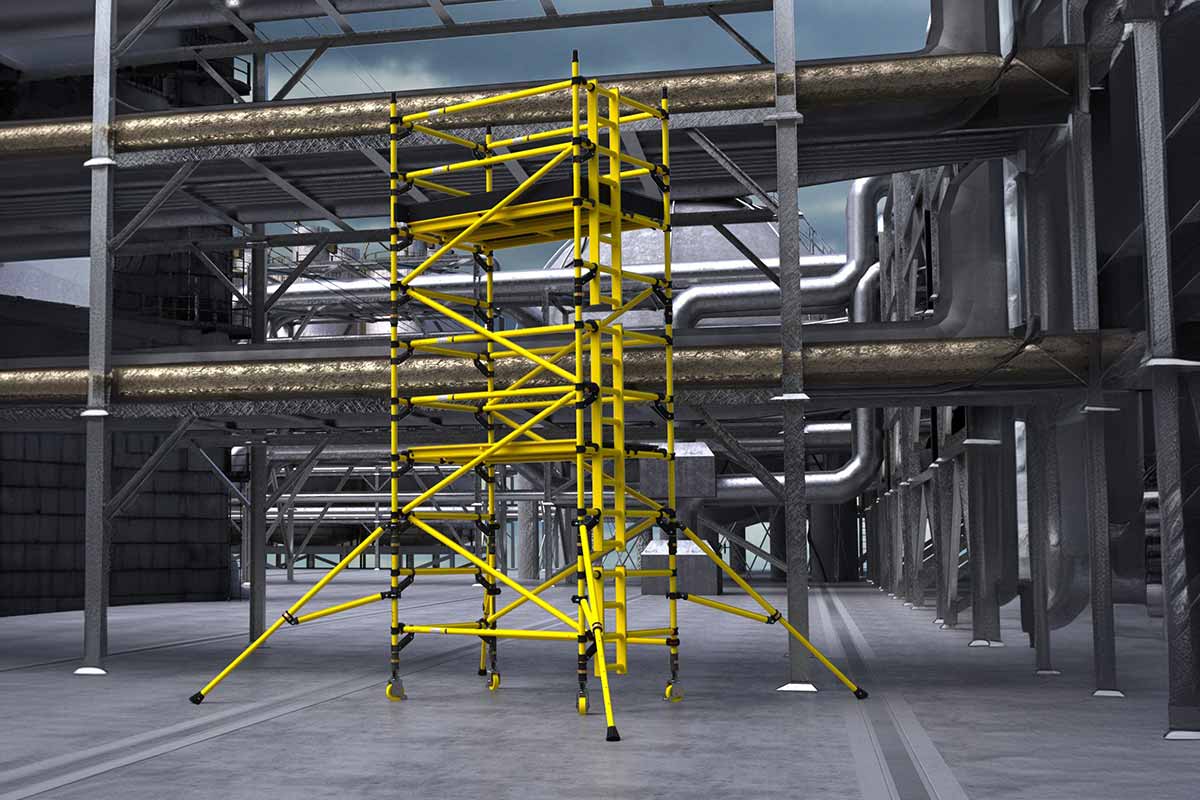
–
At Ladders4Sale, we offer a range of ladders, platforms, steps, towers and accessories for all trade and do-it-yourself jobs at unbeatable low prices.
What’s more, all of our products come with lifetime support – after your initial purchase, we continue to provide ongoing support and assistance for free. In addition to this, all orders come with free shipping to mainland UK.
If you need expert advice, please don’t hesitate to contact us using this form or by calling us on 01639 849847 to speak with a member of our team. And for more tips and insights into the wonderful world of ladders, head over to our regularly updated ladder blog.
Related Products
-
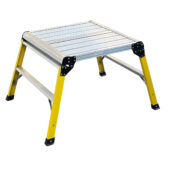
Werner Odd Job 600 Fibreglass Work Platform
-
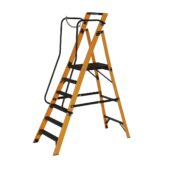
Werner Megastep Series Platform Fibreglass Steps
-
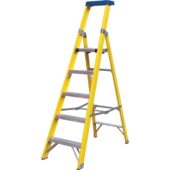
Zarges Fibreglass Platform Step Ladders
-
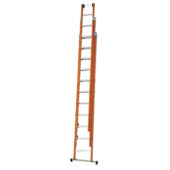
Murdoch GRP Triple Fibreglass Extension Ladders with Retractable Stabiliser Bar
-
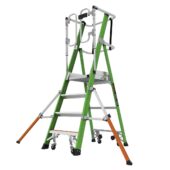
Little Giant Safety Cage Series 2.0 HiViz GRP Fibreglass Podium Step
-
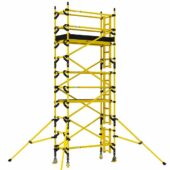
Boss Zone 1 Fibreglass 3T 0.85m or 1.45m Wide x 1.8m or 2.5m Long
Be the first to know the latest industry news and offers
